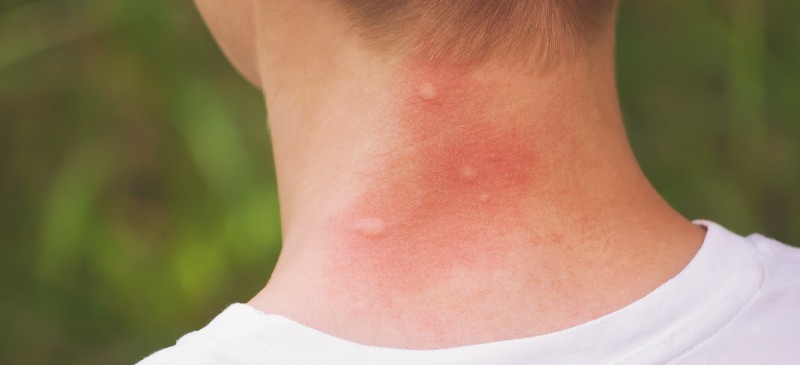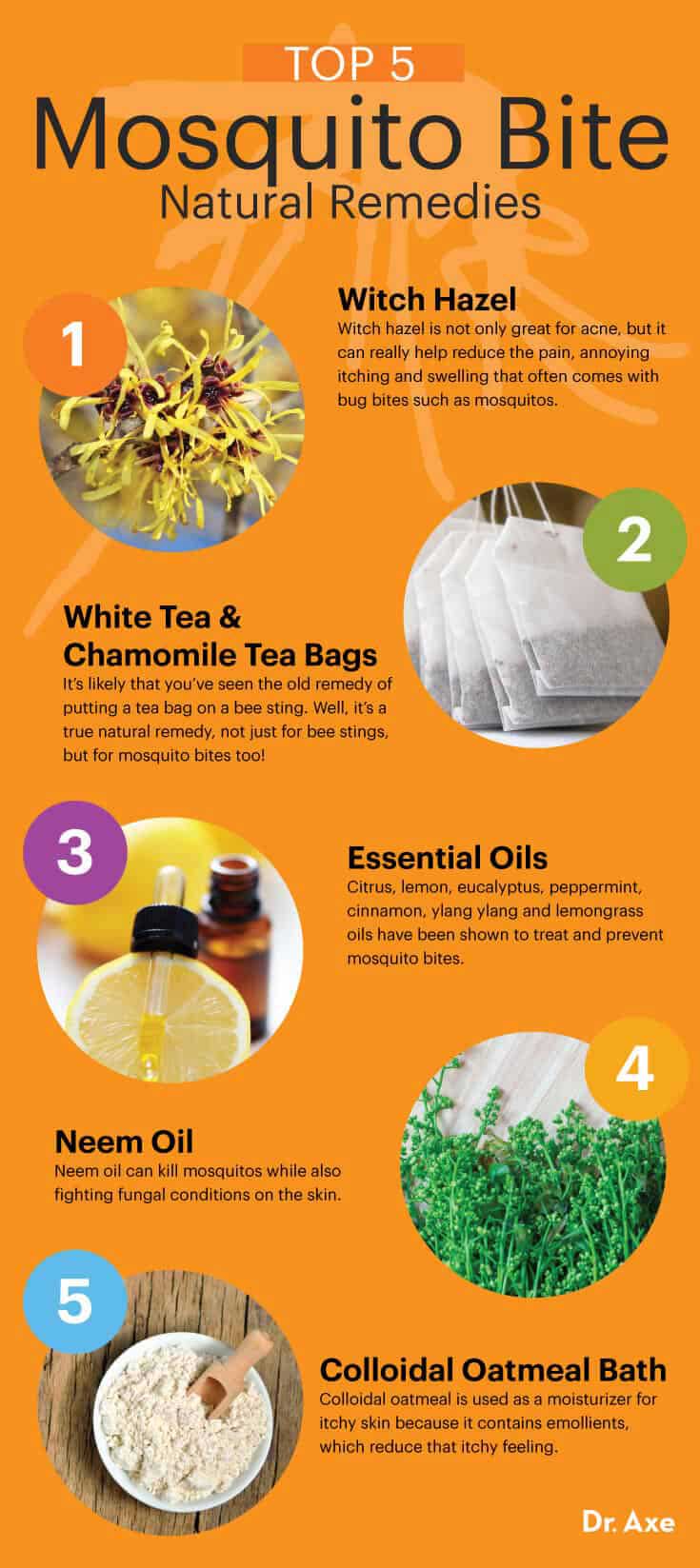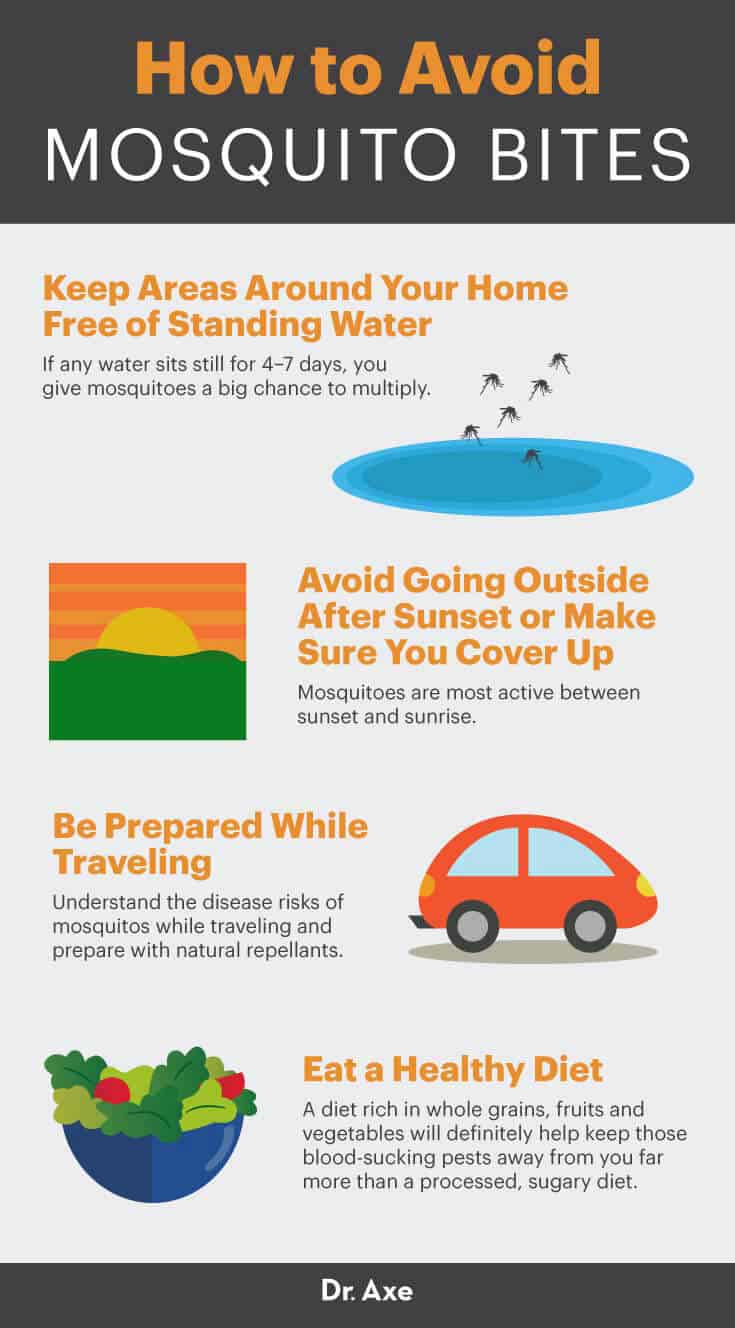This Dr. Axe content is medically reviewed or fact checked to ensure factually accurate information.
With strict editorial sourcing guidelines, we only link to academic research institutions, reputable media sites and, when research is available, medically peer-reviewed studies. Note that the numbers in parentheses (1, 2, etc.) are clickable links to these studies.
The information in our articles is NOT intended to replace a one-on-one relationship with a qualified health care professional and is not intended as medical advice.
This article is based on scientific evidence, written by experts and fact checked by our trained editorial staff. Note that the numbers in parentheses (1, 2, etc.) are clickable links to medically peer-reviewed studies.
Our team includes licensed nutritionists and dietitians, certified health education specialists, as well as certified strength and conditioning specialists, personal trainers and corrective exercise specialists. Our team aims to be not only thorough with its research, but also objective and unbiased.
The information in our articles is NOT intended to replace a one-on-one relationship with a qualified health care professional and is not intended as medical advice.
Top 5 Home Remedies for Mosquito Bites
May 1, 2017

No one likes mosquito bites, but they come with the territory as summer embarks, especially near areas that contain stagnant water and swamp-like conditions. The simple yet constant itch is annoying enough, but there have been concerns, and for good reason, about much more serious conditions that can occur from mosquito bites.
If only there were ways to avoid these pests, and avoid diseases like Zika virus that mosquitos carry, along with home remedies for mosquito bites that worked quickly and effectively.
Well I’ve got some good news: There are several home remedies for mosquito bites, along with many ways to avoid getting bit in the first place. Take, for instance, my Homemade Bug Spray — an excellent repellant for bugs of all kinds, including mosquitos.
But a high-quality, safe, natural bug spray isn’t your only option. Check out my top five home remedies for mosquitos along with tips on how to avoid these itchy bites in the first place.
Top 5 Home Remedies for Mosquito Bites
Did you know there there are more than 3,000 types of mosquitos in the world, and nearly 200 of them live here in the U.S.? It’s true, and that may explain why mosquitoes have long been a threat, with a reputation of delivering some pretty nasty results from their bites.
If you do get bit, here are some of the best home remedies for mosquito bites that are natural, safe and highly effective.
1. Witch Hazel
You may have heard of witch hazel for blemishes on the skin, but it’s not only great for acne — it can really help reduce the pain, annoying itching and swelling that often comes with bug bites, including mosquitos bites. Additionally, witch hazel can help speed up the healing process.
How does witch hazel work? It works as an astringent through a natural chemical it contains called tannin. This tannin can help reduce swelling and stave off bacteria while healing inflamed skin tissue.You can simply apply it directly to the skin. It’s great when combined with baking soda, forming a paste, then applied to the bug bites.
2. White Tea and Chamomile Tea Bags
It’s likely that you’ve seen the old remedy of putting a tea bag on a bee sting. Well, it’s a true natural remedy, not just for bee stings, but for mosquito bites too. It works because the ingredients in white tea help reduce inflammation. You can put a used, cold tea bag, acting as a poultice, right on the bite. Not only does it help with inflammation, but the coolness of the tea bag can help soothe the itch.
White tea and chamomile tea are known as great topical treatments for many skin issues. Because the tea has antiseptic, antioxidant and polyphenolic properties, including apigenin, luteolin and quercetin, it makes for the perfect and rather comforting fast remedy for mosquito bites.
3. Essential Oils
A 2016 study published in the Journal of the American Mosquito Control Association tested the effects of the oils of certain plants against mosquito bites. The oils of “citrus aurantifolia (leaves), Citrus grandis (fruit peel), and Alpinia galanga (rhizome),” were used to create a lotion and compared against commercial repellants. The essential oil-based lotions revealed an impressive 90 percent protection against mosquito bites for four hours.
Another study from the Centers for Disease Control and Prevention focused on the use of oil of lemon eucalyptus, which is registered with Environmental Protection Agency and can be found on the list of insect repellants. A couple of scientific publications have documented that the oil of lemon eucalyptus can provide protection much like low concentrations of common insect repellant ingredient DEET, though I want to note that oil of lemon eucalyptus has not been tested internationally or with malaria-spreading mosquitoes so take caution when traveling.
However, my Homemade Bug Spray contains lemon essential oil and eucalyptus oil and may help.
Other essential oil options that mosquitoes seem to dislike are peppermint oil, ylang ylang and lemongrass essential oil. Take a few drops of your favorite and blend it with a carrier oil, such as coconut oil or olive oil, and rub onto the skin before going outside for activities.

4. Neem Oil
Neem oil is another option that you may want to try. A study conducted by the Department of Entomology and Wildlife at the University of Cape Coast in Ghana and published in the Journal of Insect Science revealed that 95 percent of the larvae of the mosquito died within a day of being exposed to powdered neem leaf. However, the aqueous leaf extract took much longer to have a positive effect.
While neem oil can help kill the mosquitos, it’s also fantastic for fighting fungal conditions, like eczema. If it can help with fungus, it makes sense that it can help fight off the effects of mosquito bites and help prevent infection that may be caused through too much scratching.
5. Colloidal Oatmeal Bath
Have you considered soaking in a soothing oatmeal bath? This old remedy still holds its reputation as a great way to soothe the itching caused by mosquito bites, in addition to reducing swelling these nasty bites may cause. It’s commonly seen in bath soaps, shampoos, shaving gels and moisturizing creams due to its ability to treat inflammatory skin conditions.
Colloidal oatmeal is used as a moisturizer for itchy skin because it contains emollients, which are what reduce that itchy feeling. Oats have been used for numerous skin conditions for centuries, such as atopic dermatitis and eczema. Oats contain avenanthramides, which are powerful antioxidants. These avenanthramides are the main polyphenolic antioxidants that have been shown to reduce inflammation and itching that causes scratching. It makes the skin feel super silky, too.
The great news is that you can make your own remedy right at home. Simply use your coffee grinder or something similar, and grind up gluten-free oatmeal to a fine powder. Add it, along with a few drops of chamomile, to your bath and soak for 15 minutes once or twice a day.
Other treatments to relieve itching that comes along with mosquito and other bug bites include:
- Activated charcoal
- Raw honey
- Aloe vera
- Baking soda
- Basil
- Garlic
Things You Can Do to Avoid Mosquito Bites
Through studies, we know that mosquitoes carry parasites and some pathogens, such as malaria, filariasis, and viruses better know as the West Nile and Zika. Today, we still don’t have a dependable treatment for these possible severe cases — therefore, avoiding mosquito bites altogether is the best approach.
Some areas are hit way harder than others, such as Ethiopia, South Africa, Nigeria, Kenya and Tanzania, and studies have shown that “native inhabitants of the African study regions traditionally use 64 plant species, belonging to 30 families” to help prevent mosquito bites. Citrus, eucalyptus, lantana camara and lippia javanica are the most common plants used in those areas.
People use these in three different ways: One is by burning the plants and allowing the smoke to become the repellents — likely where our idea of citronella torches and candles came from. Another is hanging plants inside the homes or tossing leaves throughout the home. Lastly, essential oils are applied directly to the body. While more studies need to be conducted, we have learned a lot from the African continent.
While the home remedies for mosquito bites above are great to treat those itchy annoyances, here are some ways to avoid getting bitten in the first place.
1. Keep Areas Around Your Home Free of Standing Water
Take the time to survey your home. Check out the pool, water drains, buckets, tires and anything that can hold water, and remove the water or get rid of those unnecessary items altogether. If any water sits still for four to seven days, you’re giving mosquitoes a big chance to multiply. You need to eliminate any water possible to help reduce the risk of a mosquito infestation.
Look around for flowerpots, trash cans and buckets that may collect water. Take time to unclog your gutters. If you have a birdbath, change out the water weekly. It’s also important that you flush sump pump pits on a regular basis, and don’t allow those fun, little, plastic swimming pools sit with water for days on end. If your swimming pool cover is collecting water, remove that water as soon as you can. And always keep your pools and hot tubs clean.
If you keep your recycling containers outside, drill holes in the bottoms so the water can drain out when it rains. If you have some major areas that are collecting water around the lawn, you can hire a professional landscape architect to help you determine the best ways to eliminate the consistent collection of water in those areas. Keep the lawn mowed. Tall grass and weeds are favorite hang-outs for mosquitos! The Orange County Mosquito and Vector Control District in California suggests stocking any ornamental ponds with mosquito fish. Some organizations provide these at no charge so check with your local agency. (Always avoid invasive species.)
2. Avoid Going Outside After Sunset — But If You Do, Cover Up
Mosquitoes are most active between sunset and sunrise. Try to plan your outdoor activities at different times to help avoid annoying bites.
If you must be outdoors, wear long sleeves and pants. It’s best to make sure they’re thick enough since mosquitoes can bite through some clothing. You may even want to spray your clothing with a natural repellant to help stave off these pesky insects. It can help to avoid bright clothing and and perfumes as well, since these tend to attract mosquitos.
3. Prepare to Prevent Mosquito Bites While Traveling
It’s critical that you think through your travel plans. The Centers for Disease Control and Prevention has very useful information on its website, particularly in regard to Zika. Mosquito bites can put you at a high risk of some pretty serious diseases, including Zika, dengue or chikungunya.
It’s even more critical if you’re pregnant or considering getting pregnant. Make sure you do the proper research for the areas that you plan to travel to. Make sure that you’re aware of what you can do to prevent mosquito bites before you arrive and once you are there. Of course, traveling with some liquids isn’t allowed, but you can likely travel with small bottles of essential oils and an empty spray bottle so you can do a blend once you arrive at your destination. Otherwise, you may be stuck with some unhealthy ingredients, which can be dangerous for anyone, especially those who are pregnant or nursing.
4. Eat a Healthy Diet
Your diet can make a difference in helping you avoid mosquito bites. A diet rich in whole grains, fruits and vegetables definitely helps keep those blood-sucking pests away from you far more than a processed, sugary diet. One of the suggestions has long been raw garlic — however, studies claim that a topical blend using garlic and beeswax may be even more effective.
Avoiding beer consumption could help too. Research has shown that those who drink beer had more mosquitos bites than those who didn’t. Onions and bananas can help stop the itching as well. Just rub inside of the banana peel or a piece of onion directly onto the bite for relief. Most spicy foods contain garlic and onions so they may help as well.
What to Do If You Have an Allergic Reaction
Mosquitos can carry diseases in addition to the annoying itch they provide, but in some cases, people also can have allergic reactions to mosquito bites. Typically, a bite delivers a red, swollen bump accompanied by an annoying itch that can occur within hours and last a few days, but it also can cause blistering-type lesions, hives, fever and swelling in the joints if someone is allergic.
That’s not all. It can even cause a life-threatening condition called anaphylaxis, which can present itself as a swelling throat, hives, faintness or wheezing. Though mosquitoes rarely cause this reaction, it can happen and could require medical attention. If you or someone you are with experiences any of these symptoms, seek professional help immediately. Make sure to elevate the area, apply ice to reduce swelling and clean blisters with soap water — and make sure you do it gently so you don’t break the blister, which can cause infection.

A Little About the Mosquito
Let’s gain a little understanding about mosquitoes. Mosquitoes require water to live. They don’t develop and go through their life cycles in grass or shrubbery — however, the adults often rest in these areas during the day. It’s the female that bites us, being attracted to humans, mammals and birds, and she only lives about three weeks during the summer. She may live a few months during the winter as well so she can lay her eggs in the spring. The male is a bit kinder to us in the sense that he is only interested in plant juices.
Mosquitos typically hang out in tall grasses and weeds near buildings and other structures because they love stagnant, standing water that’s often found in things like buckets, birdbaths, rain gutters, septic seepage and other materials that hold water. So keeping anything that can hold water clean and clear of rainwater and the like can make a big difference.
Precautions on Mosquito Bites
Pregnant women, women who are breast-feeding or women who are trying to get pregnant should not travel to any location where Zika virus may exist. You can find information here. It’s also important to know that the Zika virus can be spread by a male sexual partner.
Final Thoughts on Home Remedies for Mosquito Bites
- There are more than 3,000 types of mosquitos in the world, with nearly 200 of them living in the U.S.
- Mosquitoes carry parasites and some pathogens, such as malaria, filariasis, and viruses better know as the West Nile and Zika.
- Five of my favorite home remedies for mosquito bites include witch hazel, white tea and chamomile tea bags, essential oils, neem oil, and colloidal oatmeal bath.
- Other treatments to relieve itching that comes along with mosquito and other bug bites include activated charcoal, raw honey, aloe vera, baking soda, basil and garlic.
- To help avoid mosquito bites, keep areas around your home free of standing water, avoid going outside after sunset or at least cover up if you do, prepare while traveling for potential mosquito areas, and eat a healthy diet.
